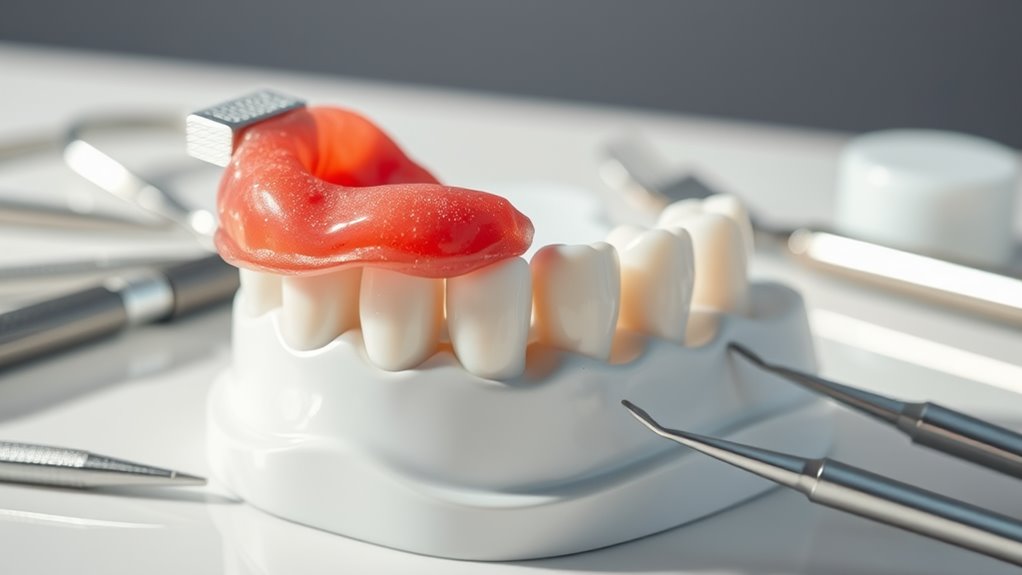Are Root Canals Really Safe What Dentists Aren’t Telling You!
Root canals are generally safe and effective when done by a qualified dentist. Many people fear pain, but local anesthesia keeps you comfortable during the procedure. Modern techniques and sterilization methods minimize risks and improve success rates. While some emerging research raises questions about long-term safety, alternatives can lead to severe infections and other complications. It’s important to weigh your options carefully. If you’re curious about the details behind these practices, there’s more to discover.
Common Misconceptions About Root Canals
Many people believe that root canals are painful procedures, but that’s a common misconception. In reality, most patients experience only mild discomfort during the process. Your dentist uses local anesthesia to numb the area, making it similar to getting a filling.
You might even feel relieved afterward, as the treatment alleviates the pain caused by an infected tooth. Another myth is that root canals are a last resort. In fact, they’re an essential way to save your natural tooth and prevent further issues.
Some worry about the safety of the procedure, but with modern techniques and sterilization methods, the risks are minimal. Understanding these misconceptions can help you make informed decisions about your dental health.
The Science Behind Root Canal Safety
Although some may hesitate at the thought of a root canal, scientific advancements have made the procedure safer and more effective than ever.
Modern techniques, such as digital imaging and precise instrumentation, allow dentists to evaluate your tooth’s condition accurately and perform the procedure with minimal discomfort. Additionally, advancements in anesthesia guarantee you’ll feel little to no pain during the process.
The materials used for sealing the tooth have also improved, reducing the risk of infection and enhancing the longevity of the treatment.
Research continually supports the safety of root canals, demonstrating high success rates and low complications. With these innovations, you can trust that root canals are a reliable option for preserving your natural teeth and maintaining your oral health.
What Patients Should Know Before Undergoing a Root Canal
Before you undergo a root canal, it’s essential to understand what the procedure entails and how it can benefit you. This treatment aims to relieve pain caused by infected or damaged pulp in your tooth.
It’s typically performed under local anesthesia, so you won’t feel pain during the process.
You should also know that while the procedure might sound intimidating, it’s a common dental practice with a high success rate. Afterward, you’ll likely experience some discomfort, but it usually subsides within a few days.
Make sure to discuss any concerns with your dentist and ask about post-procedure care. Understanding what to expect can ease your anxiety and help you make informed decisions about your dental health.
Traditional Dental Perspectives vs. Emerging Research
As dental practices evolve, emerging research is challenging traditional perspectives on root canals and their safety.
Many dentists have long viewed root canals as a necessary remedy for infected teeth, promoting their effectiveness without much hesitation.
However, recent studies suggest that bacteria may linger in the treated tooth, potentially leading to health issues.
You might find that some experts are now questioning the long-term safety of these procedures, advocating for a more cautious approach.
This shift in perspective highlights the importance of staying informed about new findings.
As a patient, you deserve to understand both established practices and emerging evidence, allowing you to make educated decisions about your dental health and any potential risks involved.
Alternative Treatments and Their Risks
While many people seek alternatives to root canals, it’s crucial to understand that these treatments come with their own set of risks. You might think you’re avoiding the drill, but options like extraction, herbal remedies, or ozone therapy can lead to complications.
Here are some risks to evaluate:
-
Infection: Leaving a tooth untreated may lead to severe infections.
-
Tooth Loss: Extraction can lead to shifting teeth and other alignment issues.
-
Unproven Efficacy: Many alternative treatments lack scientific backing, making results unpredictable.
-
Delayed Treatment: Choosing an alternative over a root canal might worsen the situation, leading to more extensive and costly procedures later.
Be sure to weigh these risks against your options before making a decision.
Frequently Asked Questions
Can Root Canals Cause Long-Term Health Issues?
Yes, root canals can potentially cause long-term health issues, especially if infections develop or if the procedure isn’t performed properly. It’s essential you follow up with your dentist to guarantee everything’s healing as it should.
What Is the Success Rate of Root Canals?
The success rate of root canals is around 85-97%. You can expect lasting results if you maintain good oral hygiene and follow your dentist’s aftercare advice. It often saves your natural tooth effectively.
Are There Any Age Restrictions for Root Canal Procedures?
There aren’t strict age restrictions for root canal procedures. Dentists often perform them on both children and adults, but they consider individual health and tooth condition. It’s best to consult your dentist for personalized advice.
How Painful Is the Recovery Process After a Root Canal?
The recovery process after a root canal can vary, but most people experience mild discomfort rather than severe pain. You might need over-the-counter pain relievers, and swelling typically subsides within a few days.
Can Root Canals Lead to Tooth Loss Later On?
Root canals typically don’t lead to tooth loss if performed correctly. They save the tooth by removing infection and sealing it. However, neglecting aftercare or follow-up treatment can increase the risk of complications later.




